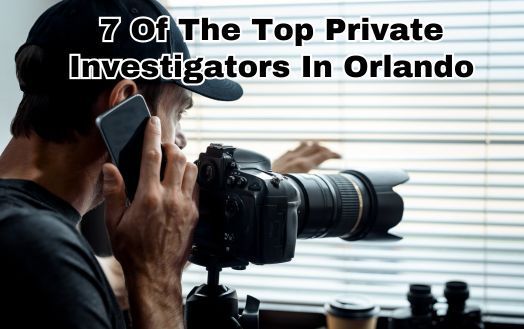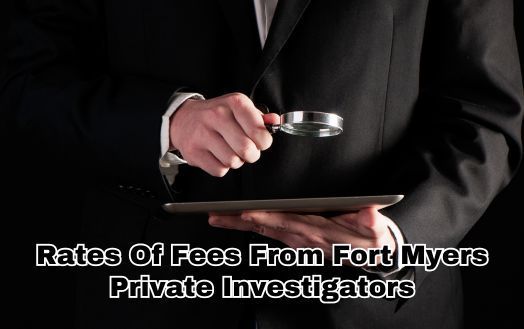Background Checks Can See Private Social Media

Background Checks Can See Private Social Media
As a job seeker, I've always been fascinated by the hiring process. From polishing my resume to nailing interviews, there's something thrilling about the pursuit of landing a dream job. However, with the rise of social media screening in background checks, the game has changed.
Did you know that potential employers can now see your private Facebook and Instagram accounts? It's true, and it's causing quite a stir among candidates and privacy advocates alike. In this article, we will know if background checks can see private social media.
In this article, we'll explore the world of social media screening and its impact on both employers and job seekers. We'll delve into the methods used for screening, as well as red flags employers look out for when evaluating candidates' online presence. Additionally, we'll examine how a strong social media presence can positively impact your candidacy while also discussing concerns around employer access to private accounts.
Join me as we uncover this new frontier in employment background checks!
Social Media Screening
It's important to remember that employers can and often do use social media screening during the hiring process. This means that they might take a look at your Facebook, Twitter, or Instagram profiles to get a better idea of who you are as a person. While this may seem invasive, it's becoming more and more common in today's digital age.
One thing to keep in mind is that not all social media content is created equal. Some things are public-facing and easily accessible to anyone who wants to view them. Other things, however, might be private or only visible to certain people.
When it comes to background checks, employers are often able to see both public and private social media content. So what does this mean for job seekers? It means that you should always be mindful of what you post on social media, even if your accounts are set to private. Employers want to hire someone who will represent their company well both online and offline.
If you're unsure about whether something is appropriate for social media or not, it's best to err on the side of caution and keep it off your profiles altogether.
With this in mind, let's take a look at the employer perspective when it comes to social media screening.
Employer Perspective

From the employer's perspective, they can easily access information about their potential employees by simply searching for them online. With social media screening becoming a common practice during background checks, it's important for employers to be aware of what they're looking for and how it could affect their hiring decisions. While social media can provide insight into a candidate's personality, interests, and communication style, it also raises concerns about privacy and bias.
As an employer myself, I've found that social media screening can be a useful tool in the hiring process. It allows me to get a better sense of who the candidate is beyond their resume and cover letter. However, there are certain risks involved with this practice as well. For example, if an employer stumbles upon information related to a candidate's race, religion or sexual orientation on their social media profiles, it could lead to discrimination claims.
Despite these risks, many employers continue to use social media screening as part of their background check process. In order to mitigate these risks and ensure fairness in hiring practices, it's crucial for employers to establish clear guidelines on what they're looking for when conducting such screenings. You can also hire a business coach to help you find and vet the right employee. Additionally, candidates should be made aware that their social media profiles may be reviewed during the hiring process so that they have the opportunity to clean up any potentially damaging content.
As we move forward with innovation in recruitment practices, it's important to balance the benefits of technology with ethical considerations around privacy and fairness. The next section will explore some candidate privacy concerns related to social media screening during background checks without compromising our ability as employers to make informed hiring decisions based on accurate information.
Candidate Privacy Concerns
Protecting candidate privacy is crucial in the hiring process, especially when using online platforms to gather information about potential employees. With the rise of social media screening, it's important for candidates to think about their personal online presence and how it may be viewed by employers.
Here are four things candidates should consider when thinking about their private social media accounts:
- Privacy settings: Candidates can adjust their privacy settings on social media platforms to control who has access to their content. It's important to review these settings regularly and make sure they align with your comfort level.
- Content: Even with strict privacy settings, there is still a possibility that content can be seen by potential employers. Candidates should be mindful of what they post and consider if it could negatively impact their job search.
- Professionalism: While personal social media accounts should remain separate from professional ones, candidates should still maintain a level of professionalism on all platforms.
- Legal protection: In some states or countries, there are laws that protect candidate privacy during the hiring process. Candidates should research these laws and understand their rights.
As more companies turn to social media screening as part of the hiring process, candidate privacy concerns become more prevalent. However, there are steps that both candidates and employers can take to ensure that private information remains protected while still providing valuable insight into a potential employee's character and work ethic.
The next section will explore different screening methods used by employers during the hiring process without compromising candidate privacy.
Screening Methods

Red Flags For Employers
Keep an eye out for these warning signs as you evaluate potential hires, as they could indicate issues that may impact their performance or fit within your organization.
One of the first red flags to look out for is inappropriate behavior on social media. A social media background check can reveal a lot about a candidate's values and personality. If they've got a history of posting offensive or discriminatory content, it could suggest that they may not be a good cultural fit for your company.
Another red flag to consider is a lack of transparency during the hiring process. If a candidate seems evasive or untruthful when answering questions about their work history or qualifications, it could be cause for concern. This behavior could indicate that they have something to hide and are not being upfront with you about their past experiences.
Lastly, pay attention to any inconsistencies in the information provided by the candidate and what you uncover through your research. For example, if their resume claims that they graduated from a prestigious university but their LinkedIn profile says otherwise, this could be another red flag. These discrepancies can signal dishonesty and raise doubts about their overall credibility.
While it's important to keep these red flags in mind during the hiring process, it's also crucial to respect candidates' privacy rights. Make sure any social media background checks comply with legal considerations before proceeding further into the hiring process.
Legal Considerations

As an employer, it's important to keep an eye out for any red flags when hiring new employees. However, it's equally important to consider the legal implications of doing so.
This is especially true when it comes to conducting social media background checks on potential hires. Many employers are unaware that these background checks can often include access to private social media accounts. While this may seem like a useful tool in the hiring process, there are legal considerations that must be taken into account.
Specifically, it's important to ensure that any information gathered through these checks does not violate anti-discrimination laws or invade the privacy of the candidate. It's crucial for employers to fully understand the legal implications of conducting social media background checks before implementing them in their hiring process.
By doing so, they can avoid potentially costly lawsuits and ensure they're making informed decisions about their candidates. With that said, let's dive into the background check process and how it should be approached with caution and care.
Background Check Process
You're about to discover how you can conduct a thorough investigation into potential employees, while ensuring that their privacy is respected and anti-discrimination laws aren't violated. Let us see if background checks can see private social media.
Conducting a background check on job applicants has become an essential step in the hiring process for many companies. One of the most critical components of this procedure is verifying the applicant's identity and past employment history. However, with social media becoming such an integral part of our lives, employers are now also conducting social media checks to gain more insight into their potential hires. A social media check involves looking at an individual's public profiles on various platforms to see if there are any red flags or inconsistencies in their online presence.
Employers can look at posts, comments, shares, likes, and even direct messages exchanged by the applicant on these platforms. It's important to note that employers must seek consent from applicants before conducting any social media checks as they have no legal right to access private accounts.
While it may seem invasive to some individuals, conducting a social media check can provide valuable information about the candidate's personality, character traits, and behavior outside of work. This information could help employers make better hiring decisions based on how well they fit within company culture or job requirements.
In the next section, we'll discuss private social media accounts and what employers need to know when considering checking them during background checks.
Private Social Media Accounts

As I mentioned earlier, the background check process is crucial in ensuring that candidates for employment are legitimate and trustworthy. However, many people don't realize that private social media accounts can also be accessed during these checks.
Yes, you read that right - your private social media accounts might not be so private after all. This means that anything you post or share on these platforms could potentially be seen by prospective employers during the hiring process. So if you've been using social media as an outlet to vent about your current job or share controversial opinions, it might be time to start rethinking your online presence.
While this may seem invasive to some, it's important to remember that employers have a duty to ensure they're hiring someone who aligns with their company values and won't bring any negative attention or controversy.
That being said, it's still important for employers to approach this process with sensitivity and respect for candidates' privacy. With that in mind, let's take a look at how social media profiles are evaluated during background checks...
Social Media Profile Evaluation
Get ready to learn how your online presence can impact your job search, specifically through evaluating your social media profiles. Background checks now have the ability to see private social media accounts, which means that employers can view all of the content you post online. This includes posts, comments, photos, and even direct messages.
Here are four ways that social media profile evaluation can impact your job search:
- It allows employers to get a sense of who you are outside of work.
- Employers will look for red flags such as controversial posts or negative comments about previous jobs.
- A well-crafted social media presence can make you stand out from other applicants positively.
- Your online behavior could be an indicator of how seriously you take professionalism in general.
Employers use this information to determine if you would be a good fit for their company culture and represent their brand appropriately. Now more than ever before, it's essential to ensure that your private social media accounts align with the image that you want potential employers to see. As prospective hire screening becomes more thorough and comprehensive with each passing year, it's essential to stay ahead of the game by presenting yourself professionally both in-person and online.
Let's explore how companies evaluate candidates during the hiring process next!
Prospective Hire Screening

When companies screen prospective hires, they thoroughly evaluate their online presence and behavior to determine if they align with the company culture. One crucial aspect of this evaluation is conducting a background check that includes looking into private social media accounts.
While some may argue that this is an invasion of privacy, it's important for employers to ensure that they're hiring individuals who will represent their brand in a positive light. In today's digital age, people often use social media as a platform to express themselves freely without considering the impact it may have on their professional life.
As such, employers need to be aware of what potential hires are posting online and whether or not it could harm the company's reputation. Conducting thorough background checks can help identify any red flags before making a job offer. It's also essential for employers to understand the legal implications surrounding background checks and private social media screening. The Fair Credit Reporting Act (FCRA) outlines specific guidelines that companies must follow when obtaining consumer reports, including those from social media platforms. By adhering to these laws and implementing proper procedures, employers can protect themselves from potential lawsuits while still ensuring they make informed hiring decisions.
As important as it is for employers to conduct proper screenings, it's equally vital that they take responsibility for creating a work environment where employees feel comfortable sharing their thoughts and opinions without fear of repercussions. This involves setting clear expectations about acceptable online behavior and providing resources for employees who may need guidance on how to navigate social media appropriately in relation to their job responsibilities.
Employer Responsibility
You have a responsibility as an employer to create a work environment that fosters open communication and encourages employees to express their thoughts and opinions freely. However, this doesn't mean you should neglect your obligation to conduct background checks on prospective hires.
Screening candidates is crucial in ensuring the safety of your workplace, but it's important to remember that there are boundaries when it comes to what you can and cannot access. One area that has recently gained attention is private social media accounts.
While many employers may think they have the right to access a candidate's private profiles, this isn't necessarily true. It's important for employers to understand that accessing private social media accounts without consent can be illegal and result in legal consequences. Instead, focus on using publicly available information during your screening process.
As an employer, it's essential to be aware of both your rights and limitations when conducting background checks. It's also vital that you're transparent with candidates about what information will be collected during the hiring process. By doing so, you'll not only avoid potential legal issues but also build trust with future employees who'll feel more comfortable sharing their personal information, knowing that it'll be treated with respect.
Moving forward into our next section on 'social media presence impact,' we'll explore how an employee's online activity can impact their professional reputation within the company and beyond.
Social Media Presence Impact

Having a strong online presence can significantly impact an employee's professional reputation and potentially affect their career growth opportunities. In today's digital age, social media presence impact is more important than ever before.
Employers are increasingly using background checks to screen potential candidates, which includes checking private social media accounts for any inappropriate behavior or controversial posts. Employers understand that their employees represent the company they work for, both online and offline. Therefore, it's essential to maintain a positive image on social media platforms.
A negative post or comment could harm an employer's brand reputation and lead to the loss of customers. Furthermore, having a poor online presence could also affect an employee's chances of getting promoted within the company. It's important to remember that even if your account is set to private, employers may still be able to see your posts through mutual connections or other methods. That being said, it's crucial to always think twice before posting anything on social media platforms. Remember that what you say online can have real-life consequences in your professional life as well as personal life.
As we move forward in this discussion about background checks and private social media accounts, it's important to consider how our account privacy settings play a role in protecting our personal information from potential employers.
Account Privacy Settings
As we've just learned, employers are increasingly taking into account a candidate's social media presence in their hiring decisions. It's clear that our digital footprint can impact how others perceive us both personally and professionally.
However, it's important to note that not all of our social media activity is meant for public consumption. That's where account privacy settings come in. Most social media platforms offer various levels of privacy controls so that users can choose who sees their content and how much information is shared with the world at large. These tools allow us to maintain a certain level of intimacy within our online communities while still engaging with the wider world.
But what about background checks? It turns out that some employers are now able to access private social media accounts as part of their screening process. This means that even if we think we're keeping our profiles under wraps, there may be no such thing as true digital privacy when it comes to job hunting.
So what does this mean for job seekers?
Employer Access To Private Accounts

Employers can now potentially view your content on social media platforms that are meant for a more private audience because background checks have expanded to include searching through private accounts. While it may seem invasive, employers have the right to protect their company's reputation by ensuring they hire the right people.
However, this new development raises questions about privacy and the extent of employer access. To keep your private accounts truly private, it's important to adjust your account privacy settings. Make sure you're familiar with each platform's options and choose the ones that best suit your needs. This includes limiting who can see your posts, photos, and personal information.
Even with strong privacy settings in place, there is no guarantee that employers won't find a way to access your content. The societal implications of allowing employer access to private accounts are significant. It creates an imbalance of power between employers and employees, where potential employees feel pressure to censor themselves online in order to secure a job.
This could stifle creativity and self-expression in young professionals who need their online presence for networking purposes. As technology advances and society adapts to its changes, it remains important for individuals to understand their rights when it comes to protecting their privacy online.
Societal Implications
It's crucial for individuals to understand the societal implications of allowing access to private accounts, as it creates an imbalance of power and could stifle creativity and self-expression.
Employers having access to private social media accounts can have a chilling effect on free speech and privacy. It's no secret that social media is a place where people express their opinions, share their thoughts, and connect with others. But when employers are granted access to these private accounts, individuals may become hesitant in expressing themselves freely.
This kind of scrutiny also raises questions about the employment process itself. Should a candidate be judged based on their online presence? Or should they be evaluated solely based on their qualifications? The truth is that we don't yet know how much weight employers are putting on our digital lives during the hiring process. This uncertainty adds stress and anxiety for job seekers who feel like they're constantly being watched.
While social media has become an integral part of our daily lives, it's important for us to consider the potential risks associated with sharing personal information online. We need to balance our desire for connectivity with our right to privacy – especially when it comes to employment opportunities.
As we move forward into an increasingly digitized world, it's important that we remain aware of the impact that technology has on our society as a whole.
Final Thoughts
Overall, as someone who's experienced the job search process, I understand the importance of presenting oneself positively on social media. However, it's concerning that employers have access to private accounts and can potentially use personal information against candidates.
While it's important for employers to conduct background checks to ensure they're hiring responsible individuals, there should be limitations on what information they can access. It's also important for candidates to be aware of their privacy settings and how their online presence could impact their job prospects.
In the bigger picture, this issue raises questions about privacy rights in our increasingly digital world. As technology continues to advance and more of our lives are lived online, it's crucial that we establish clear boundaries and regulations around what personal information can be accessed by employers or other entities.
Ultimately, while social media screening may seem like a necessary tool for employers, it's important that we prioritize protecting individuals' privacy rights in the process when background checks can see private social media.
Frequently Asked Questions
How Do Background Check Companies Gain Access To Private Social Media Accounts?
I've always been curious about how background check companies can access private social media accounts. It turns out that they often use specialized software that allows them to search for and view publicly available information, as well as any content that the account owner has shared with a wider audience.
In some cases, they may also request access to private accounts from the account owner themselves or from their friends or followers. While this might seem invasive at first glance, it's important to remember that these checks are typically conducted for employment or security purposes and are designed to ensure that individuals are trustworthy and have a clean record.
As technology continues to evolve, it's likely that we'll see even more innovative ways of conducting background checks in the future.
Can Employers Use Information From Private Social Media Accounts To Discriminate Against Candidates?
Yes, employers can use information from private social media accounts to discriminate against candidates. It's important to remember that once something is posted online, it can potentially be seen by anyone.
While background check companies may have access to private social media accounts, it's ultimately up to the employer to decide what information they want to use in their hiring process. This is why it's crucial for job seekers to carefully curate their online presence and ensure that they're not posting anything that could be used against them in the job search.
As technology continues to advance, it's important for both employers and job seekers alike to stay informed on best practices for navigating the digital landscape.
What Happens If A Candidate Refuses To Provide Access To Their
Private Social Media Accounts?
If I refuse to provide access to my private social media accounts during a job application process, it's important to understand that employers may interpret this as suspicious behavior. In some cases, they may even choose not to proceed with the application altogether.
However, it's also important to remember that I have every right to protect my personal information and privacy, especially in the digital age where online presence is so heavily scrutinized. Ultimately, it's up to each individual candidate to weigh the potential consequences of refusing access versus protecting their personal boundaries.
As society continues to grapple with these issues around privacy and technology, we must remain vigilant and informed about our rights as individuals.
Are There Any Laws Or Regulations In Place To Protect Candidates' Privacy During Social Media Screening?
As someone who values privacy and innovation, I was curious to know if there are any laws or regulations in place to protect candidates' privacy during social media screening. It turns out that there are some measures in place, such as the Fair Credit Reporting Act which requires employers to obtain written consent from candidates before conducting background checks.
However, when it comes to social media screening specifically, the laws are not as clear-cut. There is currently no federal law that prohibits employers from checking a candidate's social media accounts, including private ones. That being said, some states have passed legislation that limits an employer's ability to access certain types of information on social media platforms.
As technology continues to progress at a rapid pace, it'll be interesting to see how these laws evolve and adapt to new challenges in protecting individuals' privacy rights.
What Are The Potential Long-Term Societal Implications Of Employers Having Access To Candidates' Private Social Media Accounts?
As someone who's fascinated by the potential of technology to transform society, I can't help but think about the long-term implications of employers having access to candidates' private social media accounts. It's not just a matter of privacy – although that's certainly a concern. The real issue is how this kind of screening could affect our ability to innovate and create new ideas.
If we're constantly worried about what our employers might find on our social media profiles, we may be less likely to take risks and pursue unconventional ideas. This could stifle creativity and ultimately harm our economy and society as a whole.
As we continue to grapple with these issues, it's important that we find ways to balance the need for security with the need for freedom and innovation.













